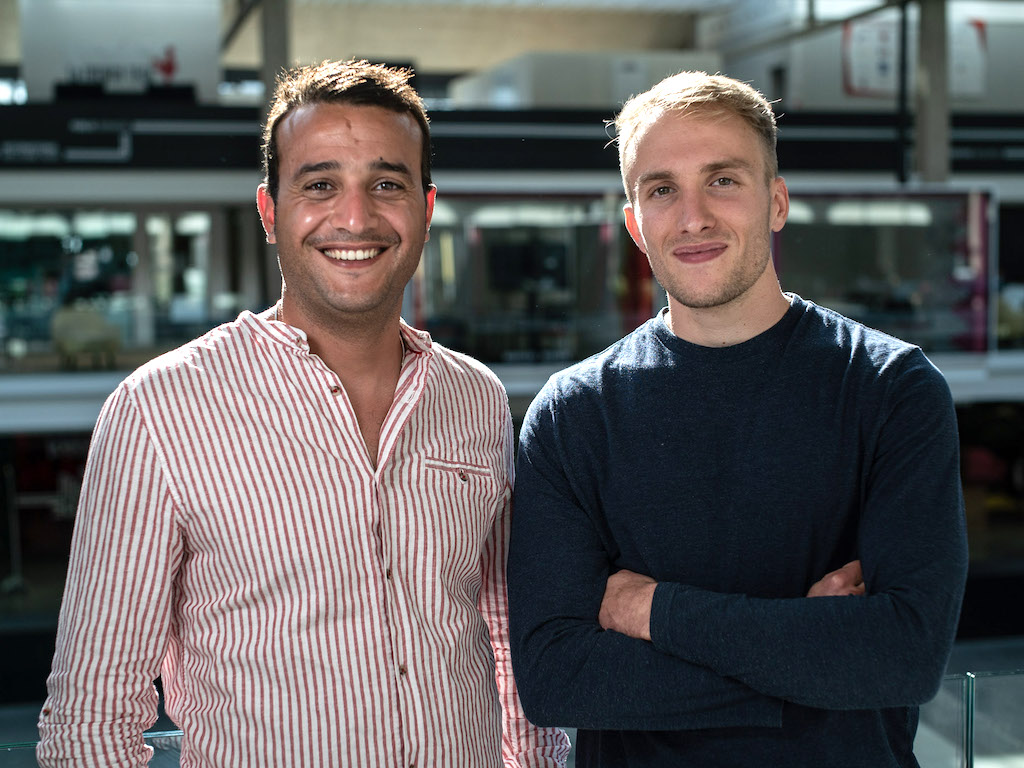3 Mins Read
French startup Core Biogenesis has raised €2.6 million (US$3.16 million) in seed financing, which will go towards accelerating production of its cost-efficient growth factors for applications in both cell therapy and the development of cultivated meat. The startup, currently with the Paris-based incubator Station F, says it will work towards producing its first samples and will aim for testing within the next six months.
Founded this year, Core Biogenesis has secured its first funding round of US$3.16 million, led by Franco-German tech startup venture capital XAnge, with additional backing from London-based incubator Entrepreneurs First, California’s accelerator Plug and Play and undisclosed angel investors. The young company was started by scientists Alexandre Reeber and Chouaib Meziadi in May, in the midst of the coronavirus pandemic.
The French startup says that the financing will help the startup develop its first samples of growth factors, which are intended for use in two primary applications – cell therapy for neurodegenerative diseases or cancers and the development of cultivated protein. It also says that the funding will help the Core Biogenesis recruit new scientific team members to accelerate its scale-up plans.
While costs of producing cell-based meats have fallen over the years, such as cultivated food tech pioneer Mosa Meat’s milestone of slashing costs of its growth medium by 88-fold, growth factors remain a costly ingredient that is a roadblock to mass production and commercialisation.
We are going to produce growth promoters ten times cheaper. Ultimately, they will be between 100 and 200 times less expensive.
Alexandre Reeber, Co-Founder & CEO, Core Biogenesis
According to Core Biogenesis, its method of large-scale production of growth factors enables them to lower costs significantly, which could make cultivated proteins more affordable and accessible when they get to market – the timeline for which has been sped up since San Francisco-based food tech Eat Just received regulatory approval from Singapore authorities to begin selling its cultured chicken, in what is the world’s first-ever allowance of a commercial cell-based meat product.
“These [growth factor] molecules represent 50% to 80% of the cost [of production of cultivated protein]. We are going to produce growth promoters ten times cheaper. Ultimately, they will be between 100 and 200 times less expensive,” said co-founder and CEO Reeber, in an interview with Les Echos.
Reeber added that the company has already secured around 30 confidential clients, including large pharmaceuticals and cultivated protein companies, who are interested in purchasing the firm’s growth factors.
Currently working on developing its first prototypes thanks to its latest capital injection, Core Biogenesis says that it will begin the testing phase around six months from now, before the marketing stage to begin providing its growth factors platform to clients.
Despite the French agricultural minister’s recent controversial comments forcefully suggesting that France will never accept cultivated meat, interest in alternative proteins and cell-based solutions in particular have grown significantly since the pandemic struck, highlighting the need for sustainable, safer and more resilient protein supply chains though there are still less than a handful of French cell-based startups, the first (and most well known) being cultivated foie gras maker Gourmey.
Julien Denormadie’s remarks were quickly criticised by experts for failing to recognise the many advantages that cultivated proteins will bring to revolutionise the broken meat supply chain, which is contributing an estimated 18% of global greenhouse gas emissions each year, driving unsustainable practices such as deliberate deforestation and fuelling the threat of future zoonotic pandemics.
Also in the running to help expedite the development of sustainable cell-based meats by offering cost-efficient growth factors are a number of other startups across Europe. Iceland’s ORF Genetics is using barley to create its line of bio-risk-free growth factors, which it says will be sold for 50% to 60% cheaper prices than its competitors.
Brussels-based Tiamat Sciences is leveraging plant-based molecular farming technology to create a number of recombinant protein ingredients, including enzymes, antibodies, scaffolding and growth factors, also at a fraction of the price compared to their rivals.
Lead image courtesy of Entrepreneur First.




